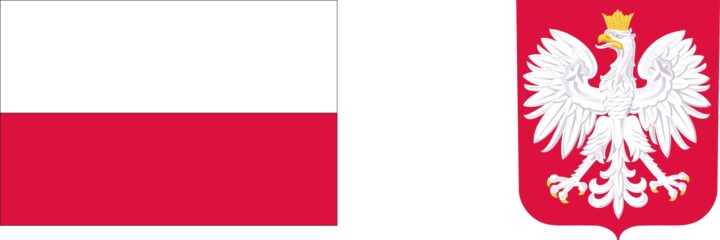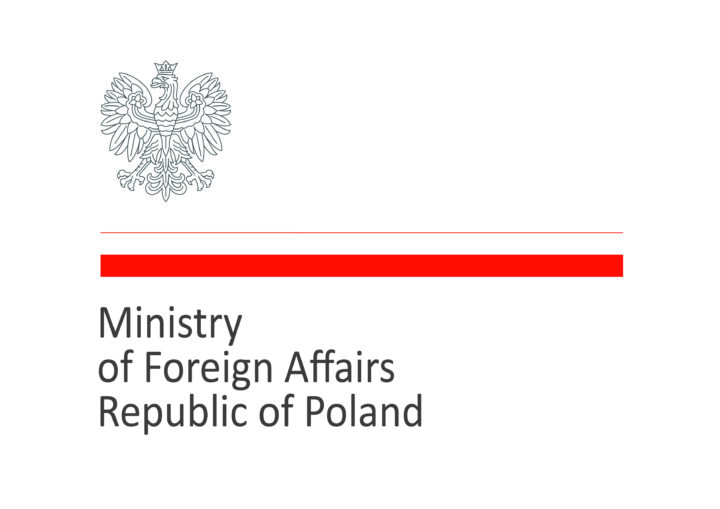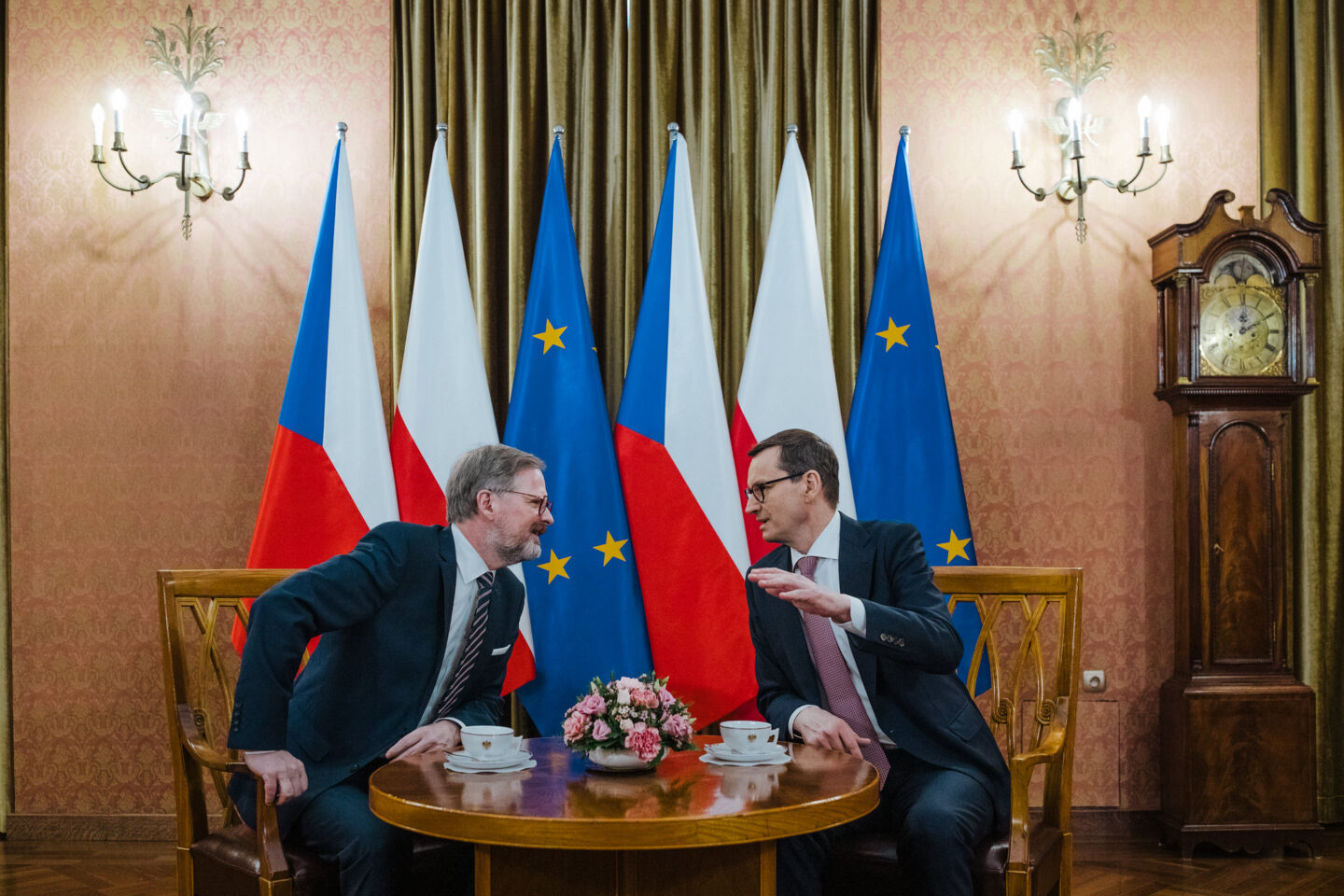Great solidarity, problems with housing, a concern with inflation, and social tensions. Czech experiences with refugees are similar
Since the outbreak of the conflict, 6 millions of Ukrainians have left their country. As many as 350 thousand of them are in the Czech Republic. From the very beginning, the reception of Ukrainians has been supported by the absolute majority of the nation, and this has transformed into a great help for the victims of this war. However, concerns with the future of that solidarity increase. The Czech Republic government foresees that the refugee crisis will cost the state budget at least CZK 54 billion (about PLN 10.5 billion). These expenses represent yet another threat to the future stability of public finances, and a risk for inflation development, especially in the post-COVID-19 times. This situation poses a significant social and demographic challenge, for example, for the Czech education system and its ability to absorb students, or for the housing situation, which was difficult already before the war. However, these circumstances may also be an opportunity.
Migration – the greatest challenge of the 21st century?
Apart from destroyed infrastructure, and suffering and victims among the civilian population, almost every military conflict brings about a migration wave. To run away when we feel threatened is a basic human instinct. We simply strive to survive. The threat does not necessarily have to be caused directly by acts of war, but can also be associated with shortage of potable water, high unemployment, or increase in the temperature that makes certain places uninhabitable.
It should be assumed that migration cannot be successfully prevented. It is a challenge to the state, its institutions, and eventually, to its citizens. However, it can be influenced, so the arrivals become a source of inspiration, new concepts, cultural enrichment, and required work force.
Recently, the increasing number of arrivals, especially from Syria and African states, has led to a decisive increase in interest in the migration problem. For a moment, this issue was overshadowed by the coronavirus pandemic, but with the war in Ukraine, the migration made newspaper headlines again. The armed conflict between Ukraine and the Russian Federation reaches its greatest intensity in the eastern and south-eastern part of the country. Mariupol, which was actually razed to the ground, is most frequently mentioned in the media, as the humanitarian situation in the city has been and still remains catastrophic.
The wave of migrants from Ukraine swelled the already rising numbers of migrating people. According to the United Nations High Commissioner for Refugees (UNHCR) estimations, today the number of people forcibly displaced all over the world is the highest since the end of World War II. By the end of the first six months of 2021, about 84 million people had to leave their homes. This represents over 1% of the global population. 48 million people were displaced within their own countries, others sought safety abroad.
In many European countries, the issue of migration not only takes a top place in political debates, but also influences election results. We saw this during French elections or the voting on Brexit. This subject overshadows previous economic divisions of the political spectrum at the right and the left wings, and gives rise to new political movements that identify themselves as anti-systemic, opposing elites and established political parties, and defending national interests and borders.
Frequently, a question whether people travel to specific places in a search of “a better life”, as economic migrants, or whether they flee because of a risk to their safety, is asked in the political discourse. There is also a well-known conflict of interests between somewheres, i.e., people who are strongly connected with a place where they live and work, and anywheres, people who are flexible, use international mobility, and are not bound to one place. This problem will certainly escalate also in the Czech Republic.
A tragedy of international consequences
According to the latest UN statistics, the total number of emigrants that have left Ukraine since the outbreak of the conflict is estimated at over 14 million. 6 million Ukrainians left their country, and over 8 million (so-called internal migrants) moved to a different territory within Ukraine.
The greatest number of people displaced from Ukraine, estimated even at 3.6 million, are in Poland. There are many reasons underlying this situation, including cultural similarities, language similarities, closeness of borders, warm welcome, and the overall Ukraine-friendly policy of the Polish government, which has clearly condemned the Russian aggression on the Polish eastern neighbour since the beginning of the invasion.
According to official estimations, in the Czech Republic there are about 350 thousand people fleeing the war, i.e., one-tenth of the above number. Since the outbreak of war, the Czech Republic has granted special visas to 358 474 Ukrainians. This is an impressive number. Poland and the Czech Republic differ greatly in their size. Poland has the surface area of 312,679 km² and a population of 38 million citizens, compared to 78 870 km² and 11 million for the Czech Republic, respectively.
From the very beginning, the absolute majority of the nation, nearly 90% of the Czechs, have supported the reception of Ukrainians. The help provided to victims of war, both financial and material, was enormous. The Czechs acknowledge that the help is necessary, but they do not fully agree to its extent. 60% of people consider the help provided to refugees as excessively generous, and are of the opinion that ultimately the Czech Republic will have to subsidise it. An important question is how the government will react, taking into account the budget situation, when it will have to choose between the scale of help for the war refugees and the ad hoc aid for its own citizens.
The Czech Republic government foresees that the refugee crisis will cost the state budget at least CZK 54 billion (about PLN 10.5 billion). Especially in the post-COVID-19 times, when the debt increased enormously, these expenditures pose yet another threat to the future stability of public finances, the Czech Republic rating, and the inflation development.
Many citizens from the areas of Ukraine affected by the Russian aggression flee to the west. These are mainly women and children, as men have a duty to defend the country and have therefore been banned from leaving the country. As many as 85% of Ukrainian refugees in the Czech Republic are women and children. The number of adult women is three times as high as of adult men. This situation represents a serious social and demographic challenge, because Ukrainian women frequently have to care for their children on their own, so they cannot go to work before care is provided for small children. This is an enormous challenge for the Czech education system and its ability to absorb pupils.
Another pressing problem is accommodation. Already before a significantly higher inflow of Ukrainians, apartment prices and availability, especially in cities like Prague, Brno or Ostrava, were being discussed in the Czech Republic. Recently, both real estate prices and costs of rent have been growing at a drastic rate. During the last decade, in the three largest cities of the Czech Republic apartment prices increased by as much as 98% in Prague, 114% in Brno, and 60% in Ostrava. Taking into account the better availability of subrenting, the Ukrainians focus mainly on apartments for rent, and this further increases the pressure on prices.
Unfortunately, the potential for the escalation of tensions in the society is therefore significant, especially in a view of high inflation, which has exceeded 8% in the euro area in May, representing a new record. The situation in the Czech Republic is even worse, as this index has reached two digit values, and it cannot be excluded that it will exceed the limit of 20%. All this will continue to increase the social pressure and lead to high requirements for political leaders, also in the Czech Republic.
Is there any solution?
A reaction to the refugee crisis should be spread over time. The first stage involves immediate help, to prevent the humanitarian crisis caused by the war.
At the second stage, the Czech government should define its strategy. It should decide whether it is the Czech ambition to fully assimilate arrivals from Ukraine, or only to provide them with a temporary shelter for the duration of war, and then ensure their gradual return to Ukraine.
The selected strategy will influence both the Czech Republic and Ukraine. However, this choice needs to be made. The longer the government hesitates and treads the water, the higher the probability the social tensions will continue to mount. Although the last word on whether to settle in the Czech Republic or return to Ukraine in time belongs to Ukrainians, yet the government actions determine behaviour of the refugees and the mood in the Czech society.
It is also crucial to remember that there are different groups of people among immigrants. These people differ in their age, education, experience, and previous profession. If the Czech Republic decides to keep the best people even after the end of the conflict (so-called brain drain), it should be remembered that this will be very disadvantageous for Ukraine. Without the return of the elites, the rebuilding of the country and its economy will take longer, affecting the Ukraine’s development for many decades.
On the other hand, it would be very advantageous for the Czech Republic if the most skilful Ukrainians decided to stay. Certain public circles are of the opinion that pressing on these people to return to Ukraine is not very reasonable, and from the Czech Republic point of view, it is better to create opportunities for them here, for example, by guaranteeing a permanent residence permit to those who found a job.
At the third stage, when the hot phase of the conflict ends, the state should require more from the arrivals and intensify its work with them. The charity alone can have very bad consequences sooner or later, and undermine the public support. The government can also accommodate Ukrainians in the regions in such way that a greater number of Czechs have contacts with them, to minimise the potential for development of prejudices. The government must show the will and courage to use these tools; however, nothing has been done yet.
***
We hope that the Czech government will demonstrate sufficient leadership skills. With his direct actions at the beginning of the conflict, Prime Minister Fiala demonstrated the praiseworthy political leadership, and the Czech society showed incredible solidarity. However, increasing tensions in the areas of economy and security will only become catalysts for all negative situations mentioned in this article – tensions between somewheres and anywheres, budgetary dilemmas of the government in a view of the dramatically raising state budget debt, and a clash between a short term help and a potential brain drain from the Ukraine, which in consequence may later have great problems with possible post-war rebuilding.
Due to the Ukrainian crisis, also the Czech Republic is at a position of a state that may have a significant influence on a direction of the migration wave, and on the future approach to the entire issue of handling the refugee question. It is a challenge to individual governments, but also for the European Union as the whole.
This article is available under a Creative Commons Attribution 4.0 International license. Some rights reserved to the Author of the article and the Jagiellonian Club. The article was created within the framework of „Polish-Czech Forum for the rapprochement of societies, deepened cooperation and good neighborliness 2022”. Any use of the work is allowed, under the condition that the above-mentioned information is preserved, including information about the applied license, rights holders, and that a link to our website is provided.
The opinions expressed in this publication are those of the authors and do not reflect the views of the official positions of the Ministry of Foreign Affairs of the Republic of Poland. Public task financed by the Ministry of Foreign Affairs of the Republic of Poland within the grant competition „Polish-Czech Forum 2022”.




